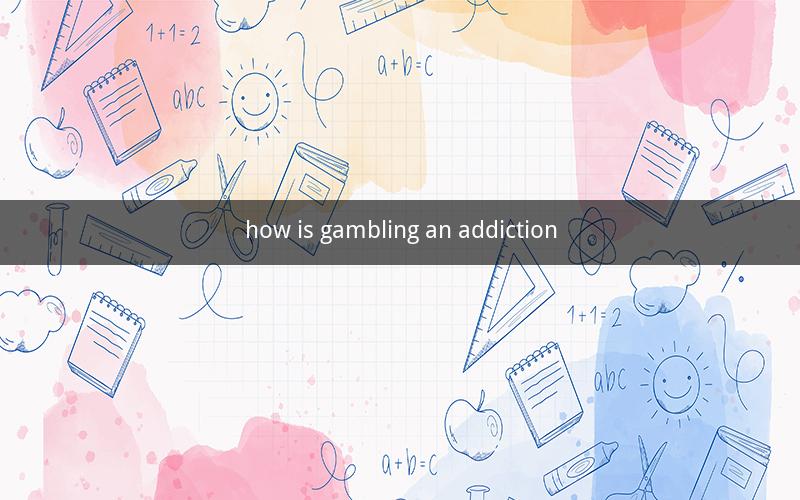
Table of Contents
1. Understanding the Concept of Addiction
2. Defining Gambling Addiction
3. The Psychological Aspects of Gambling Addiction
4. The Physical Symptoms of Gambling Addiction
5. The Social and Economic Impact of Gambling Addiction
6. Recognizing the Signs of Gambling Addiction
7. Treatment and Recovery Options
8. Preventing and Reducing Gambling Addiction
9. The Role of Technology in Gambling Addiction
10. Conclusion
1. Understanding the Concept of Addiction
Addiction is a complex condition characterized by compulsive engagement in rewarding stimuli despite adverse consequences. It is a disorder of the brain that affects behavior control, motivation, memory, and decision-making. Understanding addiction requires examining its various dimensions, including its psychological, physical, and social components.
2. Defining Gambling Addiction
Gambling addiction, also known as problem gambling or compulsive gambling, is a behavioral addiction characterized by an individual's inability to control their urge to gamble, despite the negative consequences it may cause in their life. It is a disorder that can affect people of all ages, genders, and socioeconomic backgrounds.
3. The Psychological Aspects of Gambling Addiction
The psychological aspects of gambling addiction are multifaceted. Individuals with gambling addiction often experience a range of emotions, including excitement, anxiety, and relief. These emotions are often triggered by the anticipation of winning and the subsequent relief from stress or boredom. Over time, the brain's reward system becomes desensitized, leading to a need for increasingly higher stakes or frequency of gambling to achieve the same level of satisfaction.
4. The Physical Symptoms of Gambling Addiction
Physical symptoms of gambling addiction can include insomnia, fatigue, and changes in appetite. These symptoms are often a result of the stress and anxiety associated with the addiction. In some cases, individuals may also experience physical symptoms related to the illegal activities they engage in to fund their gambling habits, such as theft or fraud.
5. The Social and Economic Impact of Gambling Addiction
Gambling addiction can have a profound impact on an individual's social and economic well-being. It can lead to strained relationships with family and friends, job loss, financial ruin, and even homelessness. The social and economic consequences of gambling addiction can extend beyond the individual to affect their loved ones and the community at large.
6. Recognizing the Signs of Gambling Addiction
Recognizing the signs of gambling addiction is crucial for early intervention and treatment. Common signs include:
- Preoccupation with gambling, including planning and fantasizing about it
- Needing to gamble with increasing amounts of money to achieve the desired excitement
- Feeling restless or irritable when attempting to cut down or stop gambling
- Returning to gambling after losing money to recoup losses
- Lying to family, friends, or therapists about the extent of the gambling problem
7. Treatment and Recovery Options
Treatment for gambling addiction typically involves a combination of therapy, support groups, and medication. Therapy can help individuals understand the underlying causes of their addiction and develop coping strategies. Support groups, such as Gamblers Anonymous, provide a community of individuals who share similar experiences and can offer mutual support and encouragement.
8. Preventing and Reducing Gambling Addiction
Preventing and reducing gambling addiction involves a multifaceted approach, including:
- Education about the risks and consequences of gambling
- Responsible gambling practices, such as setting a budget and sticking to it
- Early intervention for individuals showing signs of gambling addiction
- Regulation and oversight of gambling activities to ensure fair and responsible gaming
9. The Role of Technology in Gambling Addiction
Technology has both contributed to and mitigated gambling addiction. Online gambling platforms offer convenience and accessibility, which can increase the risk of addiction. However, technology also provides tools and resources for individuals to monitor and manage their gambling habits, such as self-exclusion programs and responsible gambling apps.
10. Conclusion
Gambling addiction is a complex disorder with significant psychological, physical, and social consequences. Recognizing the signs of addiction, seeking appropriate treatment, and implementing preventive measures are essential for individuals struggling with this condition. By understanding the nature of gambling addiction, we can work towards a society where individuals can enjoy gambling responsibly without falling into the trap of addiction.
---
Questions and Answers
1. What is the primary difference between gambling addiction and problem gambling?
- Gambling addiction is a severe form of problem gambling characterized by compulsive behavior and significant negative consequences.
2. Can someone with a gambling addiction recover?
- Yes, recovery from gambling addiction is possible with proper treatment and support.
3. Are there any medications that can help treat gambling addiction?
- Some medications, such as mood stabilizers and antidepressants, may be used to treat the underlying psychological issues contributing to gambling addiction.
4. How can I tell if someone I know is struggling with a gambling addiction?
- Look for signs such as secrecy, financial problems, and changes in behavior related to gambling.
5. What is the most effective treatment for gambling addiction?
- The most effective treatment often involves a combination of therapy, support groups, and medication, tailored to the individual's needs.
6. Can a person with a gambling addiction gamble responsibly?
- It is highly unlikely for someone with a gambling addiction to gamble responsibly without professional help.
7. How can I support someone with a gambling addiction?
- Be supportive and non-judgmental, encourage them to seek help, and offer to accompany them to therapy or support groups.
8. What is the role of family in the recovery process?
- Family members can play a critical role in the recovery process by providing emotional support and understanding.
9. Is there a genetic component to gambling addiction?
- Research suggests that there may be a genetic predisposition to gambling addiction, although environmental factors also play a significant role.
10. How can I prevent gambling addiction in my community?
- Promote education about responsible gambling, implement regulations to protect vulnerable individuals, and provide resources for those seeking help.